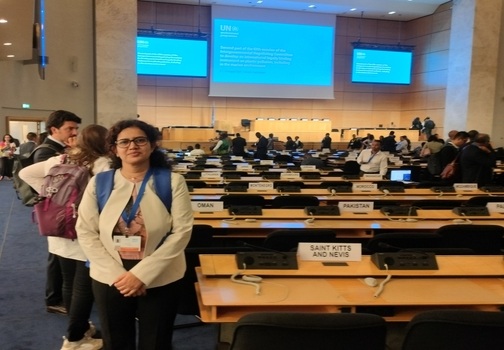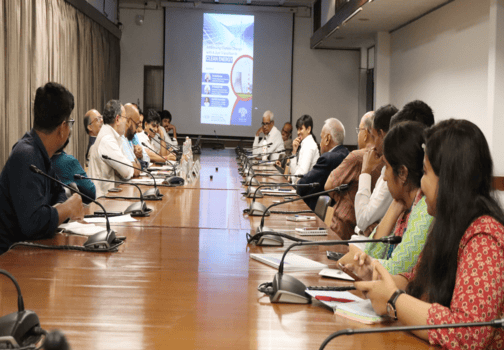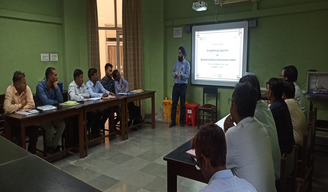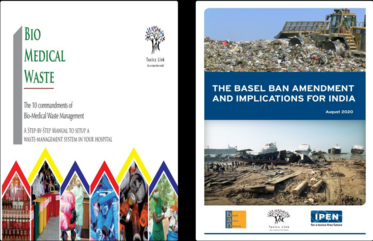DOMESTIC CHEMICAL PRODUCTION
GOVERNMENT OF INDIA
MINISTRY OF CHEMICALS AND FERTILIZERS
DEPARTMENT OF CHEMICALS AND PETROCHEMICALS
LOK SABHA
UNSTARRED QUESTION NO. 5675
ANSWERED ON-04/04/2025
DOMESTIC CHEMICAL PRODUCTION
5675 SHRI PARSHOTTAMBHAI RUPALA:
Will the Minister of CHEMICALS AND FERTILIZERS be pleased to state?
a. the steps taken by the Ministry of Chemicals and Fertilizers in collaboration with other Central Government agencies to address the critical issue of chemical dumping from China;
b. the measures implemented by the Government to enhance domestic chemical production including the initiatives undertaken to improve research efforts and train personnel for domestic chemical industries; and
c. whether any actions have been taken by the Government in coordination with State Governments and other agencies to prevent major accidents in the chemical sector, if so, the details thereof, State-wise?
ANSWER
THE MINISTER OF STATE OF CHEMICALS AND FERTILIZERS
(SMT. ANUPRIYA PATEL)
(a) The Directorate General of Trade Remedies (DGTR) in Ministry of Commerce & Industry, conducts various trade remedy investigations (anti- dumping/safeguard measures) under the Custom Tariff Act, 1975 and the rules made thereunder on the basis of a duly substantiated application filed by the domestic industry alleging dumping of goods into the country causing injury to domestic industry. The DGTR examines the applications filed by the domestic industry and evaluates responses received from importers, exporters and other interested parties in accordance with the provisions of the Custom Tariff Act, 1975. Based on this examination, DGTR submits its recommendations to the Ministry of Finance for final consideration. During the period 2022-23 to 2024- 25, based on the DGTR’s recommendations, Department of Revenue has imposed Antidumping/Anti-subsidy duty on 14 chemicals imported from China.
(b) To promote domestic manufacturing of chemicals in the country, Department has adopted a multi-pronged approach by improving infrastructure, boosting the role of research and development in the sector and improving the quality of manpower deployed in the sector by better skilling. Details of these initiatives are indicated
below:-
i. Infrastructure:
a. Petroleum, Chemical and Petrochemical Investment Regions (PCPIRs)
Government of India has notified the PCPIR Policy to attract investment and for the generation of employment in the Petroleum, Chemical and Petrochemical Investment Regions (PCPIRs). PCPIRs promote Chemical and Petrochemical sectors in an integrated and environment friendly manner on a large scale. PCPIRs are conceptualized in a cluster based approach with common infrastructure and support services to provide a competitive environment conducive for setting up businesses. At present, three Petroleum, Chemical and Petrochemical Investment Regions (PCPIRs) are being implemented in the States of Andhra Pradesh (Vishakhapatnam), Gujarat (Dahej) and Odisha (Paradeep) to promote investment and industrial development in these sectors.
The status of implementation of these PCPIR projects is indicated below:-
|
Indicator |
Gujarat |
Andhra Pradesh |
Odisha |
Total |
|
Location/ Region |
Dahej, Bharuch |
Vishakhapatnam– Kakinada |
Paradeep |
– |
|
Approva |
Feb, 2009 |
Feb, 2009 |
l Dec, 2010 |
– |
|
Total Area (Sq. kms.) |
453.00 |
640.00 |
284.15 |
1377.15
|
|
Investments made(Rs. Crore)
|
1,28,509 |
58,918 |
73,518 |
2,60,945 |
|
Employment generated (No.) |
2,45,140 |
86,123 |
40,000 |
3,71,263 |
|
No. of Chemical Units |
2079 |
154 |
13 |
2246 |
|
Anchor Tenant — Indian Oil Corporation Ltd. (IOCL) |
ONGC Petro Additions Limited (OPaL)
|
– |
Indian Oil Corporation Ltd. (IOCL |
– |
These PCPIRs have attracted investment of Rs. 2.61 lakh crore in Petroleum, Chemicals, Petrochemicals and ancillary industries and generated employment to 3.7 lakh persons.
- Plastic Park Scheme A scheme has been formulated by the Department for setting up of need-based Plastic Parks with requisite infrastructure and enabling common facilities. The objective is to consolidate and synergize the capacities of downstream plastic processing industry to help increase investment, production and export in the sector as well as generate employment. Under the Scheme, common infrastructure for the industrial units is provided including effluent treatment plant, solid/ hazardous waste management, facilities for plastic recycling, incinerator etc. Some of the Plastic Parks have also established in-house recycling sheds for recycling of plastic waste. 10 Plastic Parks have been approved so far.
- Research & Development
- Centres of Excellence (CoEs)
The Department of Chemicals and Petrochemicals has formulated a scheme on setting up of Centers of Excellence. The objective is to provide grant-in-aid to educational and research institutions to improve existing technology and promote development of new applications of polymers, chemicals and plastics. The emphasis of the Scheme is on modernization and upgradation of existing manufacturing processes as well asimproving the quality of products. Under the scheme, the Government of India provides financial support upto 50% of the total project cost, subject to an upper limit of Rs. 5 crores. So far, 18 CoEs have been approved under the Scheme.
iii. Skilling initiatives : The Central Institute of Petrochemicals Engineering & Technology (CIPET) is a technical education institution under the Department engaged in skill development, technology support, as well as academic and research activities for the promotion of the petrochemical and allied industry in the country. CIPET has 48 centres across the country which includes Institutes of Plastics Technology, Centres for Skilling and Technical Support and Schools for Advanced Research in Polymers. During 2023-24, CIPET provided training to 66,606 persons towards long term professional skill Development as well as for short term vocational skill development.
(c) Department of Chemicals and petrochemicals has taken an initiative in the form of a series of training programs on “Chemicals and Petrochemicals Industrial Safety” to impart training to workforce of primarily Major Accident Hazard (MAH) units on “Safe handling of hazardous chemicals at work place and reducing risk associated with hazardous chemicals”. These training programs which are being conducted under Chemical Promotion and Development Scheme (CPDS) focus on improving process safety and reducing the risk of hazardous situations arising from potential failures. Two persons from each such MAH unit will be trained. Department has engaged Central Institute of Petrochemicals Engineering & Technology (CIPET) to execute these training programmes. During the Financial Year 2024-25, eight training programs have been conducted covering 554 industries.






